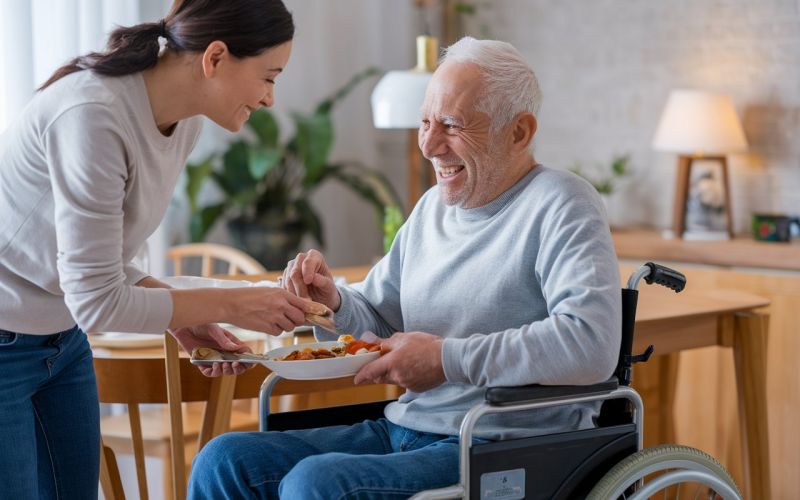Caregiving 101: Elderly Patients with Pneumonia
iSavta | 03.03.2020
Elderly people are more susceptible with pneumonia because of their age and other physical conditions that could easily cause a pneumococcal infection. Most of them have some diseases that cause their immune system to be weak and the body won’t be able to tolerate infection compared to younger people.

In 2010, the National Center for Health Statistics reported that Pneumonia was the eighth leading cause of death in the United States. 1 out of 20 patients who contracted pneumonia dies. This is one of the reasons why it is important to prevent pneumonia in the Elderly.
The symptoms of Pneumonia can vary from case to case because the disease itself is caused by more than thirty organisms or strains. But common symptoms of Pneumonia in the Elderly are as follows:
- Cough
- Yellow or Green Secretions of Sputum
- Fever and Chills
- Chest Pain
- Malaise and Weakness
- Shortness of Breath
- Confusion
Oftentimes, people mistaken pneumonia with simple flu or cold because the symptoms are not specific. Elderly patients who are suffering from Pneumonia are often lethargic or sleepy, don't want to eat and cannot breath well. It is even more difficult to tell if the patient is also suffering from degenerative disease like Dementia or Alzhemers disease.
Several diagnostic tests can determine the presence of virus of bacterial infection in the lungs. A doctor can simply request for a sputum exam, a chest X-ray or listen to the patient’s lungs through stethoscope. The doctor may also check the oxygen saturation and patient’s complete blood count.
Patients are treated depending on which organism triggered the disease. Oftentimes, bacterial pneumonia is easily treated compared to pneumonia caused by a virus. Bacterial pneumonia is often treated with antibiotics for 7-10 days while viral pneumonia usually heals without medication. THe patient is advised to take rest, eat healthy food and drink a lot of fluids. For elderly patients, it’ll not be easy since there are already some restrictions with food and even the amount of fluid intake.
Pneumonia in the elderly as well as in younger people are often caused by weakened immune system and hand-to-hand/air transmission. It is important to boost the immune system to fight off the infection. There are some ways to prevent this disease from infecting your patient:
Hand Washing - like any other infectious diseases, hand washing is the number one preventive measure in contracting deadly diseases. People touch anything as often as they touch their face, nose, mouth and eyes. Most viruses and bacteria stay on surfaces for hours. It is important to practice handwashing and sanitation.
Pneumococcal Vaccine - this vaccine is quite expensive but prevents 25 or more different pneumonia strains. It does not work well with older adults. Doctors recommend having your first dose on your 50s and your second dose at age 65, and new dose should be administered every 5 years.
Flu Vaccine - most of the pneumonia cases started with influenza or flu. If not treated properly, it will lead to pneumonia. It is recommended that older adults should have a flu shot every year.
Good Health Habits - eating more fruits and vegetables, sufficient rest and sleep, exercise and good hygiene can increase your resistance to pneumonia and other diseases.
Avoid Crowded Places During Flu Season - Minimize exposure to crowded places during flu season. If necessary, wear a protective face mask and make sure you’re at least 3 feet away from people who are sneezing or coughing.











